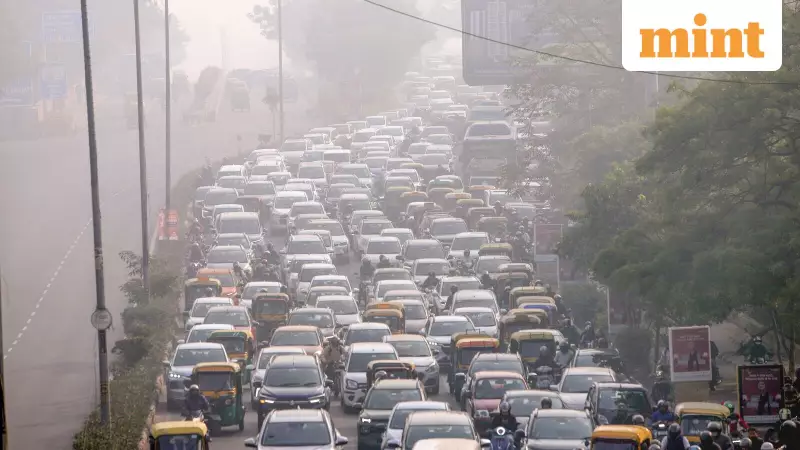
The Central government has released comprehensive new guidelines to all states and Union territories for combating health issues linked to deteriorating air quality across India. The 33-page advisory comes as the country prepares for the peak pollution season that typically runs from September through March.
Daily Chest Clinics Mandatory
Under the National Programme on Climate Change and Human Health (NPCCHH), the Union health ministry has mandated that all government-run health facilities and medical colleges establish dedicated chest clinics. These clinics must operate for a minimum of two hours daily throughout the high pollution months.
The guidelines specifically emphasize establishing these facilities at community health centres, district hospitals, and medical colleges in urban areas. The initial focus will be on cities covered under the National Clean Air Programme (NCAP).
Comprehensive Patient Management
These specialized clinics will serve multiple functions in addressing pollution-related health concerns. Patients will be screened for risk factors, receive confirmed diagnoses, obtain treatment, and access long-term care for respiratory and cardiac conditions worsened by air pollution.
The advisory requires healthcare facilities to maintain detailed digital records of patients using the Integrated Health Information Platform (IHIP). A separate register must track individuals identified as high-risk, with their details shared with respective blocks for community-based follow-up through healthcare workers like ASHA, ANM, and CHO.
Protecting Vulnerable Populations
The guidelines identify several groups as particularly vulnerable to air pollution effects. Children under five years, elderly citizens, pregnant women, asthma patients, heart disease sufferers, and outdoor workers face the highest health risks according to the document.
Union Health Secretary Punya Salila Srivastava emphasized in her letter to chief secretaries that air quality frequently reaches poor to severe levels during winter months, creating significant health challenges nationwide.
Healthcare Infrastructure Requirements
Medical facilities must ensure adequate preparedness by stocking essential supplies including:
- Sufficient medicines and oxygen cylinders
- Nebulizers and ventilators
- Hospital beds, stretchers, and wheelchairs
- Proper ambulance services and referral mechanisms
The advisory also mandates training programs for doctors and medical staff to effectively manage respiratory and cardiovascular cases exacerbated by pollution.
School Safety Measures
Educational institutions receive specific instructions for protecting children during poor air quality days. Schools should:
- Limit or suspend outdoor activities when AQI levels deteriorate
- Keep students indoors during break sessions
- Avoid physical activities like running, jogging, and playing
- Postpone celebrations and functions that involve outdoor exposure
Medical staff at schools must receive sensitization on air pollution-related health issues and emergency management protocols.
Construction Site Protocols
The guidelines address worker safety at construction sites, requiring:
- Provision of protective masks against PM2.5 and dust inhalation
- Regular health check-ups for construction workers
- Rotation of duties to minimize prolonged exposure
- Frequent water sprinkling to suppress dust particles
Health departments have been instructed to strictly monitor daily Air Quality Index levels during high pollution periods and coordinate with pollution control boards.
The comprehensive approach aims to create a healthier, cleaner environment while building resilience against the growing challenge of air pollution across Indian cities.





